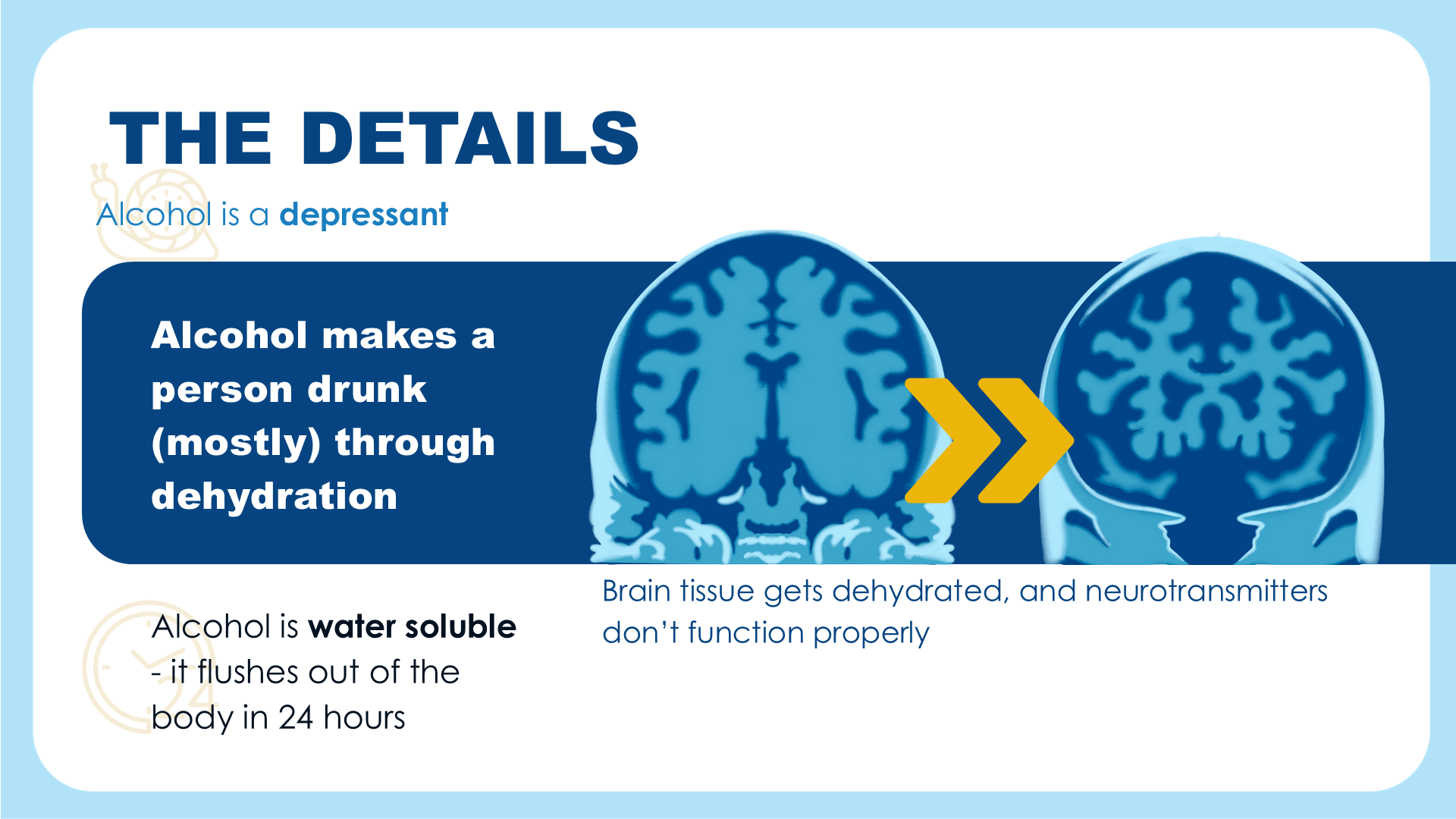SFA Sources - Science, not Judgement
SFA Substances-Science Core Curriculum
Alcohol
Metabolism/Effects of small dose of alcohol on endurance - https://pubmed.ncbi.nlm.nih.gov/19136497/
NCAA, SSI Alcohol and Athletic Performance fact sheet
https://pubmed.ncbi.nlm.nih.gov/10840864/
https://ylmsportscience.com/
NCAA https://athletewellness.uncg.edu/
https://nutritionandmetabolism.biomedcentral.com/articles/10.1186/1743-7075-11-26#Sec15
www.nsca.com/education/articles/nsca-coach/the-effects-of-alcohol-on-athletic-performance2/ - includes sited References:
1. Alcohol metabolism: An update. Alcohol alert. National Institute on Alcohol Abuse and Alcoholism. 2007. Retrieved 2016 from http://pubs.niaaa.nih.gov/publications/AA72/AA72.htm.
2. Barnes, M. Alcohol: Impact on sports performance and recovery in male athletes. Sports Med 44(7): 909-919, 2014.
3. Beyond hangovers: Understanding alcohol’s impact on your health. National Institute on Alcohol Abuse and Alcoholism. 2015. Retrieved 2016 from http://pubs.niaaa.nih.gov/publications/ Hangovers/beyondHangovers.htm.
4. Boyle, M, and Long, S. Personal Nutrition. Belmont, CA: Thomson/Wadsworth; 251-263, 2007.
5. Burke, L, Collier, G, Broad, E, Davis, P, Martin, D, Sanigorski, A, and Hargreaves, M. Effect of alcohol intake on muscle glycogen storage after prolonged exercise. Journal of Applied Physiology 95(3): 983-990, 2003.
6. Duplanty, A, Budnar R, Luk H, Levitt D, Hill D, McFarlin B, et al. Effect of acute alcohol ingestion on resistance exercise induced mTORC1 signaling in human muscle. Journal of Strength and Conditioning Research Published Ahead of Print, 2016.
7. Ebrahim, I, Shapiro, C, Williams, A, and Fenwick, P. Alcohol and sleep I: Effects on normal sleep. Alcoholism, Clinical & Experimental Research 37(4): 539-549, 2013.
8. Haugvad, A, Haugvad, L, Hamarsland, H, and Paulsen, G. Ethanol does not delay muscle recovery, but decreases the testosterone:cortisol ratio. Medicine & Science in Sports & Exercise 46(11): 2175-2183, 2014.
9. Koziris, L. Alcohol and athletic performance. American College of Sports Medicine Current Comment. April, 2000.
10. Lecoultre, V, and Schutz, Y. Effect of a small dose of alcohol on endurance performance of trained cyclists. Alcohol & Alcoholism 44(3): 278-283, 2009.
11. National Collegiate Athletic Association. 2016 – 2017 banned drugs list. Retrieved September 7th, 2016 from http://www.ncaa. org/2016-17-ncaa-banned-drugs-list.
12. O’Brien, C, and Lyons, F. Alcohol and the athlete. Sports Medicine 29(5): 295-300, 2000.
13. Parr, E, Camera, D, Areta, J, Burke, L, Phillips, S, Hawley, J, and Coffey, V. Alcohol ingestion impairs maximal post-exercise rates of myofibrillar protein synthesis following a single bout of concurrent training. PLoS ONE 9(2): 2014.
14. Prat, G, Adan, A, Sanchez-Turet, M. Alcohol hangover: A critical review of explanatory factors. Human Psychopharmacology: Clinical and Experimental 24: 259-267, 2009.
15. Shirreffs, S, and Maughan, R. Restoration of fluid balance after exercise-induced dehydration: Effects of alcohol consumption. Journal of Applied Physiology 83(4): 1152-1158, 1997.
16. U.S. Department of Health and Human Services and U.S. Department of Agriculture. Dietary Guidelines for Americans 2015-2020 (8th Ed). Retrieved 2016 from https://health.gov/ dietaryguidelines/2015/guidelines/.
17. Volpe, S. Alcohol and athletic performance. ACSM’s Health & Fitness Journal 14(3): 28-30, 2010.
18. World Anti-Doping Code International Standard. Prohibited list: January 2016. Retrieved September 7th, 2016 from http:// www.usada.org/wp-content/uploads/wada-2016-prohibited-listen.pdf.
Doubles in rates of injury - https://www.researchgate.net/publication/259498319_Experiences_and_Attitudes_of_Collegiate_Athletic_Trainers_Regarding_Alcohol-Related_Unintentional_Injury_in_Athletes
Marijuana (Cannabis/THC)
Commonly understood biomechanics by subject matter experts
Low levels of impairment – Dr. Marilyn Heustis research
**Commonly understood neurological processes/biomechanics by subject matter experts
Repository description – Dr. Bertha Madras
**Commonly understood neurological processes/biomechanics by subject matter experts
Impaired facial cues – Dr. Madras recent work.
Nicotine
Smoking-induced Skeletal Muscle Dysfunction. From Evidence to Mechanisms - https://doi.org/10.1164/rccm.201410-1830PP
https://www.livestrong.com/article/234225-effects-of-nicotine-on-athletes/
Addiction
Addiction rates – all NIDA numbers
90% of Adult addicts….The Center on Addiction (aka CASA)
50% risk of addiction - https://www.niaaa.nih.gov/alcohols-effects-health/alcohol-use-disorder/genetics-alcohol-use-disorder









